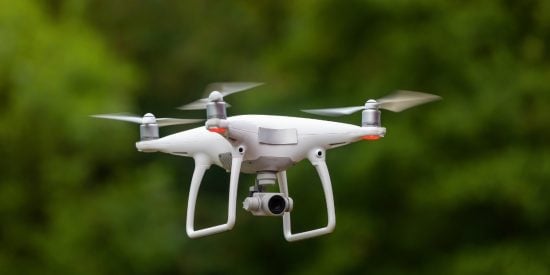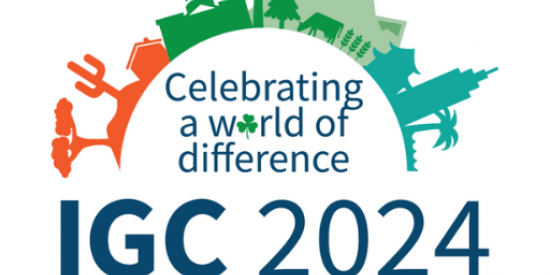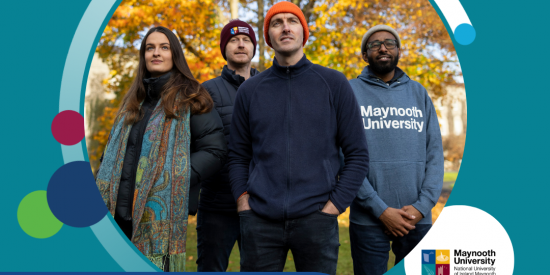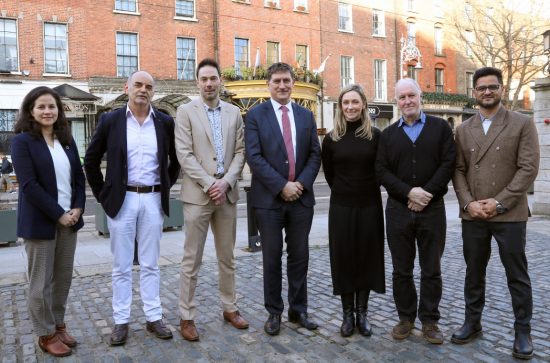
Minister Eamon Ryan today announced the launch of a year-long pilot project to measure and monitor greenhouse gas (GHG) emissions across Dublin City using a network of novel, low-cost, sensors distributed across the mobile phone mast infrastructure.
This innovative and exciting pilot project is one of several initiatives being developed by Terrain-AI, a large-scale research project focused on understanding emissions of greenhouse gases across terrestrial environments.
Terrain-AI, led by Professors Tim McCarthy and Rowan Fealy of Maynooth University, is funded under the Strategic Partnership Programme by Science Foundation Ireland and Microsoft.
The pilot project ‘Urban Sense’ was developed in partnership with Dr Gerald Mills, University College Dublin, Edgeliot, an award winning DCU spinout which has developed a combination of low cost Climate Monitoring sensors and a real-time data capture and visualisation system, Cellnex, a leading operator of wireless telecommunications infrastructure, and Delmec, an engineering company that specialises in deploying equipment on cell towers. The project was funded by Microsoft Ireland.
As part of the pilot, 20 greenhouse gas sensors have been deployed across both residential and commercial areas in Dublin. The sensors, which measure greenhouse gases such as carbon dioxide and methane, as well as air quality parameters and weather variables, will provide a real-time visual pulse of the city, reflecting differences in land use, seasonal cycle in vegetation growth, weather events and even hourly patterns of traffic moving in and around the city streets.
Minister for Environment, Climate, Communications and Transport, Eamon Ryan, said:
“It’s amazing to think that we can monitor greenhouse gas emissions in real time like this across Dublin City. Local government has a vital role to play in helping us to meet Ireland’s national climate targets. Climate action works best when it works locally, improving our environment and improving people’s quality of life. This real-time visual pulse of the city will be key to assisting Dublin City Council in developing the policy actions that can help reduce emissions and make the city a better place to live, work or visit with cleaner air, safer transport and less congestion and noise.”
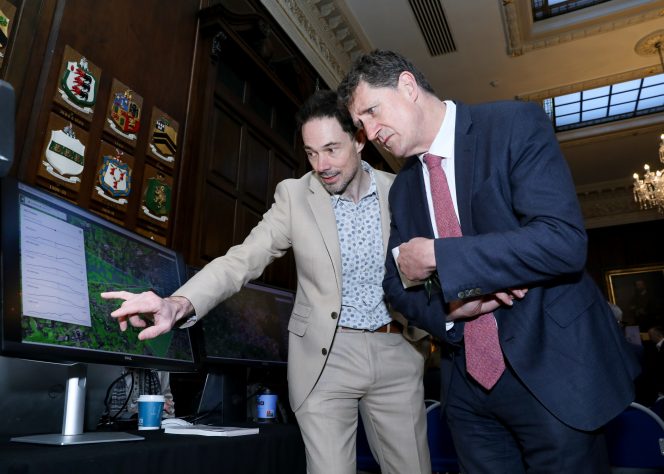
The pilot project will support the EU Cities Mission, which has selected 112 leading European cities to become climate neutral by 2030. Both Dublin and Cork were selected out of more than 370 applicant cities across Europe to participate in the EU Cities Mission and have committed to implement cutting-edge and creative solutions across areas such as energy, transport, waste, infrastructure, and buildings to reduce their environmental footprints.
Prof Rowan Fealy, Co-Principal Investigator of Terrain-AI at Maynooth University, said: “Terrain-AI is a multi-disciplinary research project that aims to provide a system-based understanding of the geography of GHG exchanges across Ireland’s diverse landscape, using innovative measurement and monitoring techniques and computational methodologies. We are delighted to work with our partners on this pilot project, which will provide us with a unique opportunity to test and validate our models and methods in an urban setting and potentially contribute to the EU Cities Mission. We hope that this project will serve as a model for other European cities to follow and to demonstrate the effectiveness of policy decisions on emissions.”
The pilot project will directly measure real-time data on CO2 and other gas concentrations across Dublin, using the low-cost sensors developed and built by Edgeliot.
The data collected will be used alongside Terrain-AI models to understand the temporal and spatial patterns of GHG emissions in relation to weather and human activities. The data will also help to identify emission hot-spots and guide policy actions to achieve emissions reductions. Critically and a unique aspect of the current pilot - the measurements obtained will provide a direct measure of how effective any implemented policy is – this has been a key challenge across urban areas internationally due to the lack of such measurement networks.
Urban Sense is directly aligned with Ireland’s Climate Action Plan, which aims to reduce GHG emissions by 51% of 2018 levels by 2030 and to be net zero by 2050. These commitments are enshrined in the 2021 Climate Action Plan and are based on the Paris Agreement.
Richard Shakespeare, Chief Executive, Dublin City Council, said: “We are excited to see the results of this innovative pilot project, which will provide us with valuable data and insights on our GHG emissions and has the potential to help us to achieve our ambitious climate goals. We are grateful to Terrain-AI, Edgeliot, Cellnex and Delmec for their collaboration and the funding from Microsoft. This project is an example of how Dublin can be leading the way in using technology and creativity to address the climate challenge and become a climate neutral city by 2030.”
Prof Tim McCarthy, Co-Principal Investigator of Terrain-AI at Maynooth University, said: “This is a good example of Irish-led research and innovation in action, focused on developing more sustainable worlds, involving a number of stakeholders including, Science Foundation Ireland, key industry partner Microsoft together with Research Institutions, Central and Local Government as well as indigenous Irish enterprise.”
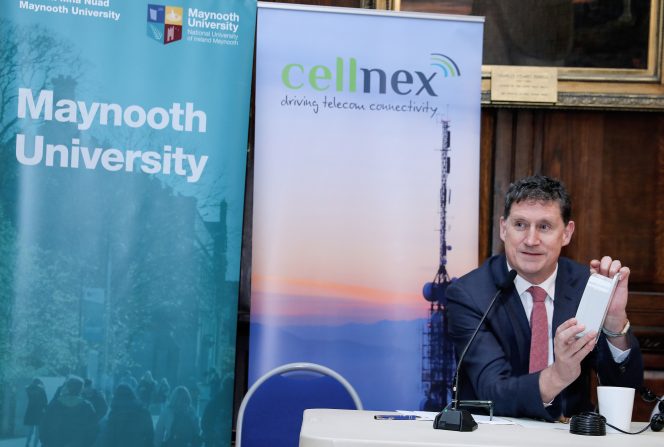 |
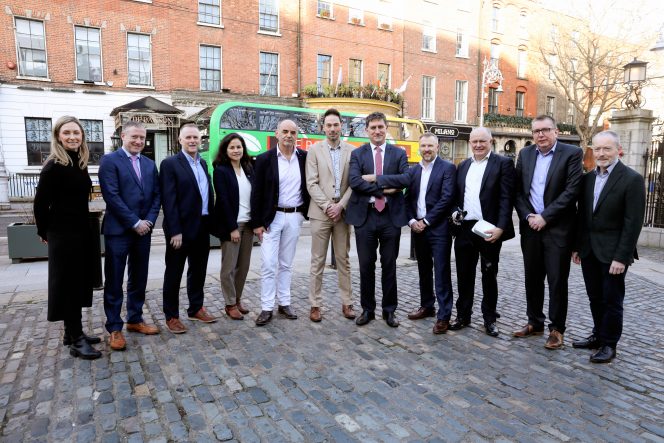 |


